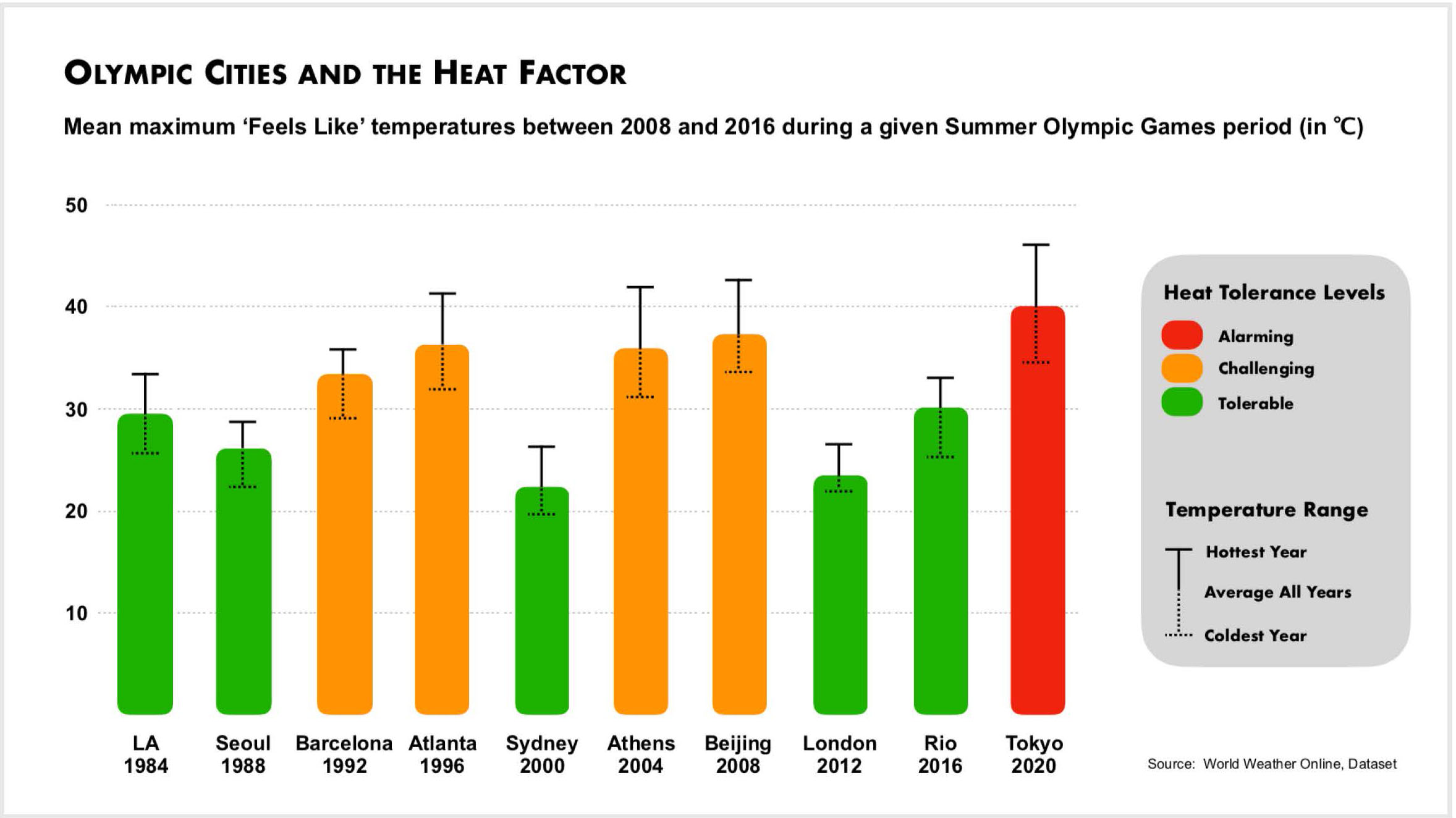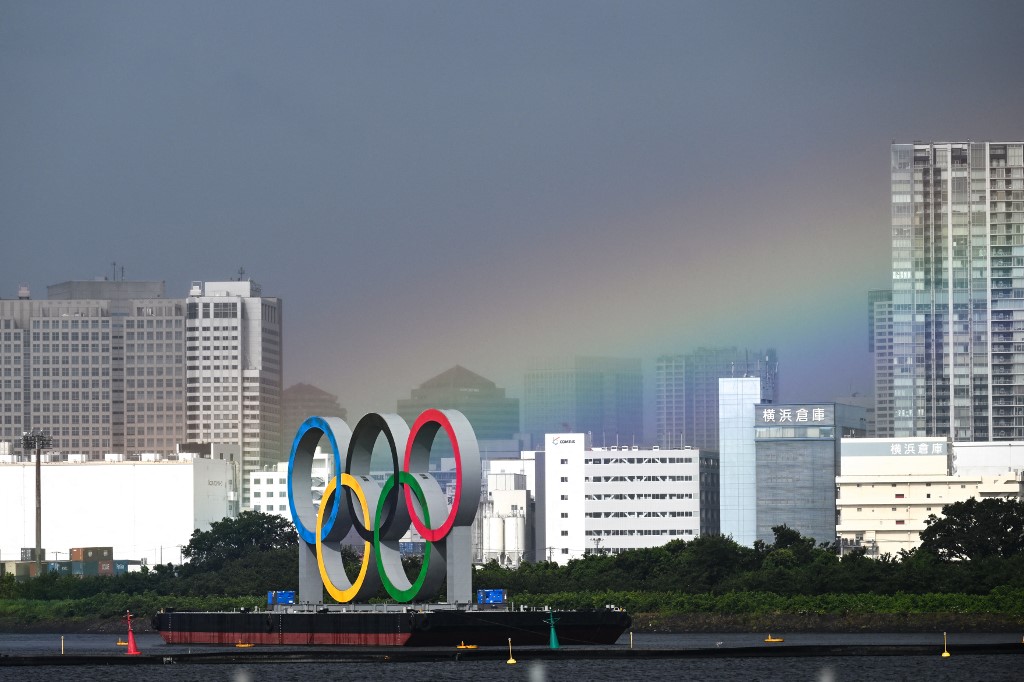Olympic heat: Did Tokyo lie about its summer weather when it bid to host the games?
On July 28, Wednesday, the heat index in Tokyo reached 37 degrees Celsius (99 Fahrenheit) and humidity was at 80%.
Spanish tennis player Paula Badosa suffered from a heatstroke and left the court at Ariake Tennis Park in a wheelchair, unable to continue her quarter-final match.
"It was shame to finish this way. The conditions have been demanding since the first day, we tried to adapt as best as possible but the body did not hold out as needed," said Badosa. "I suffered heatstroke as you all saw and I didn't feel fit to continue taking part in the match."
Russian tennis player Daniil Medvedev even asked the umpire who would be responsible if he died.
Tennis superstar Serbian Novak Djokovic said, “Humidity is brutal. Because it’s very hot and also very humid, so the hard courts absorb the heat, and it stays trapped in there. Not much wind, not much breeze. [It was] very tough. Today, from also speaking to the other players, it was the hottest day so far.”
This is the finish line of the men's triathlon in Tokyo Olympics during a heat wave. It looked like a battle field. All physicians from all countries were on deck dealing with it. #TokyoOlympics @NYITsportsmed pic.twitter.com/DjOrT7EsJq
— Joanne Donoghue (@JoanneDonoghue4) July 26, 2021
“I wasn’t enjoying it at all,” said Russian tennis player Anastasia Pavlyuchenkova after her competition days earlier, on July 24.
On July 26, an aerial photo of the finish line of the triathlon showed athletes collapsed on the ground. “It looked like a battle field. All physicians from all countries were on deck dealing with it,” director of Clinical Research NYIT-College of Ostepathic Medicine Joanne Donoghue tweeted.
According to AccuWeather, Tokyo’s weather in July to August this year can reach up to 34 degrees Celsius. In 2020, the highest temperature registered in July was 33 degrees and 36 in August.
During the summer of 2019, 57 people died and 18,000 were taken to the hospital because of heat-related issues.

While weather is unpredictable, historical averages are a good baseline to determine the kind of conditions athletes have to deal with in the Olympic host city.
Then again, neither is the weather enough reason not to host. Case in point—Doha, which won the bid to host the 2022 FIFA World Cup, and we all know the kind of temperatures in Qatar (it’s 44 degrees Celsius in Doha today).
Weather unpredictability aside, observers are now wondering whether the organizers of the Tokyo Olympics lied about the conditions this time of the year. Or did the International Olympic Committee (IOC) turn a blind eye to what everyone already knew—that Japan in July and August is sweltering and humid?
According to Yahoo News, Tokyo organizers wrote in their proposal that won the Olympic bid in 2013: “With many days of mild and sunny weather, this period provides an ideal climate for athletes to perform their best.”

The 1964 Tokyo Summer Olympics actually happened in the fall, from Oct. 10 to 24 to avoid high temperatures.
Observers say that athletes competing outdoors are sure to have their performance affected.
In response to the weather conditions, the IOC has moved the longer track races to evenings, and the marathon and race walk will be moved from Tokyo to Sapporo, the largest city in Hokkaido, 500 km. north of Tokyo where it’s cooler. Tennis matches have also been moved to start at 3 p.m. instead of 11 a.m.
Banner photo by Giuseppe Cacace/AFP


